Editor’s note: This story is part of Southwest Michigan Second Wave’s On the Ground Battle Creek series.
BATTLE CREEK, MI — Infants, toddlers, and preschoolers are clients of Early Childhood educators and caregivers in Calhoun County.
While it’s their parents and guardians who pay their tuition, they are the ones receiving direct services from these providers. In the corporate world, this would be considered a transactional business model, but when it comes to childcare, it’s not, says Maria Ortiz Borden, Co-Executive Director of Pulse.
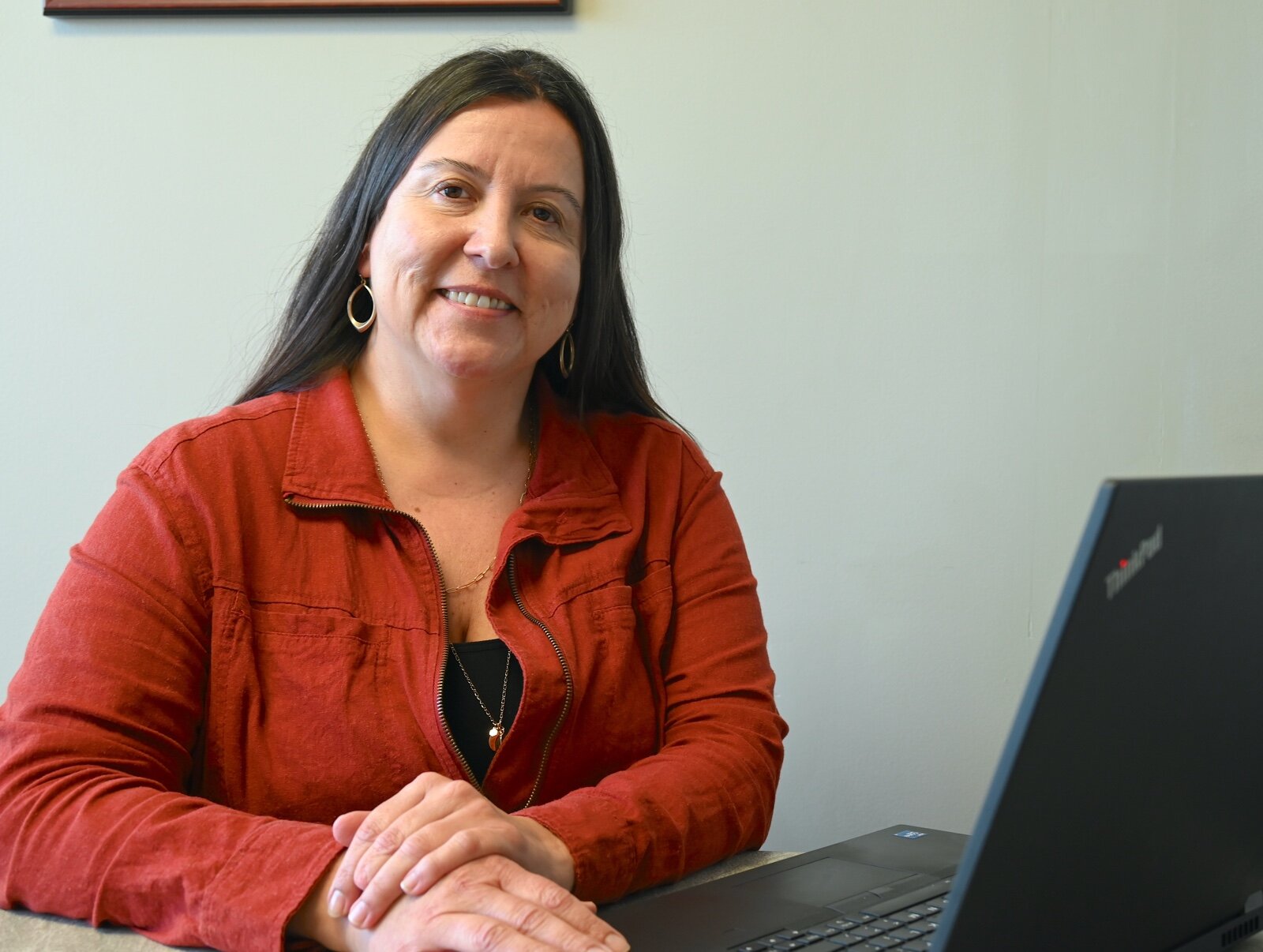
Maria Ortiz Borden
Borden and her Co-Executive Director, Kathy Szenda-Wilson, for many years, have been saying that childcare homes and centers are not looked at as business enterprises by the majority of those in the corporate and legislative sectors who have a stake in this conversation. They say this mindset has trickled down to providers, and it’s something they’re working to change.
“We are building and shifting mindsets around home providers as being small business owners,” Borden says. “We have found that many of them don’t see themselves as a business owner.”
Pulse is a partner, advocate, and coach for improving early childhood development in Michigan. Operating through the W.E. Upjohn Employment Research Institute, the organization’s work happens within the Michigan Economic Development Corporation’s (MEDC) Region 8, one of 10 in the state. These regions are known as the State of Michigan Prosperity Regions. Region 8 encompasses Berrien, Branch, Calhoun, Cass, Kalamazoo, St. Joseph, and Van Buren counties.
Among the tools Pulse is sharing with these providers for the build and shift is a statewide Child Care Back Office (CCBO) that is available to Early Education and childcare providers in Michigan.
The CCBO, supported by Develop Iosco, NEMCSA (Northeast Michigan Community Service Agency), NEMCOG (Northeast Michigan Council of Governments), and Pulse “offers a groundbreaking model that streamlines administrative burdens for childcare providers so they can focus on what matters most — caring for children,” says a press release from the NEMCSA.
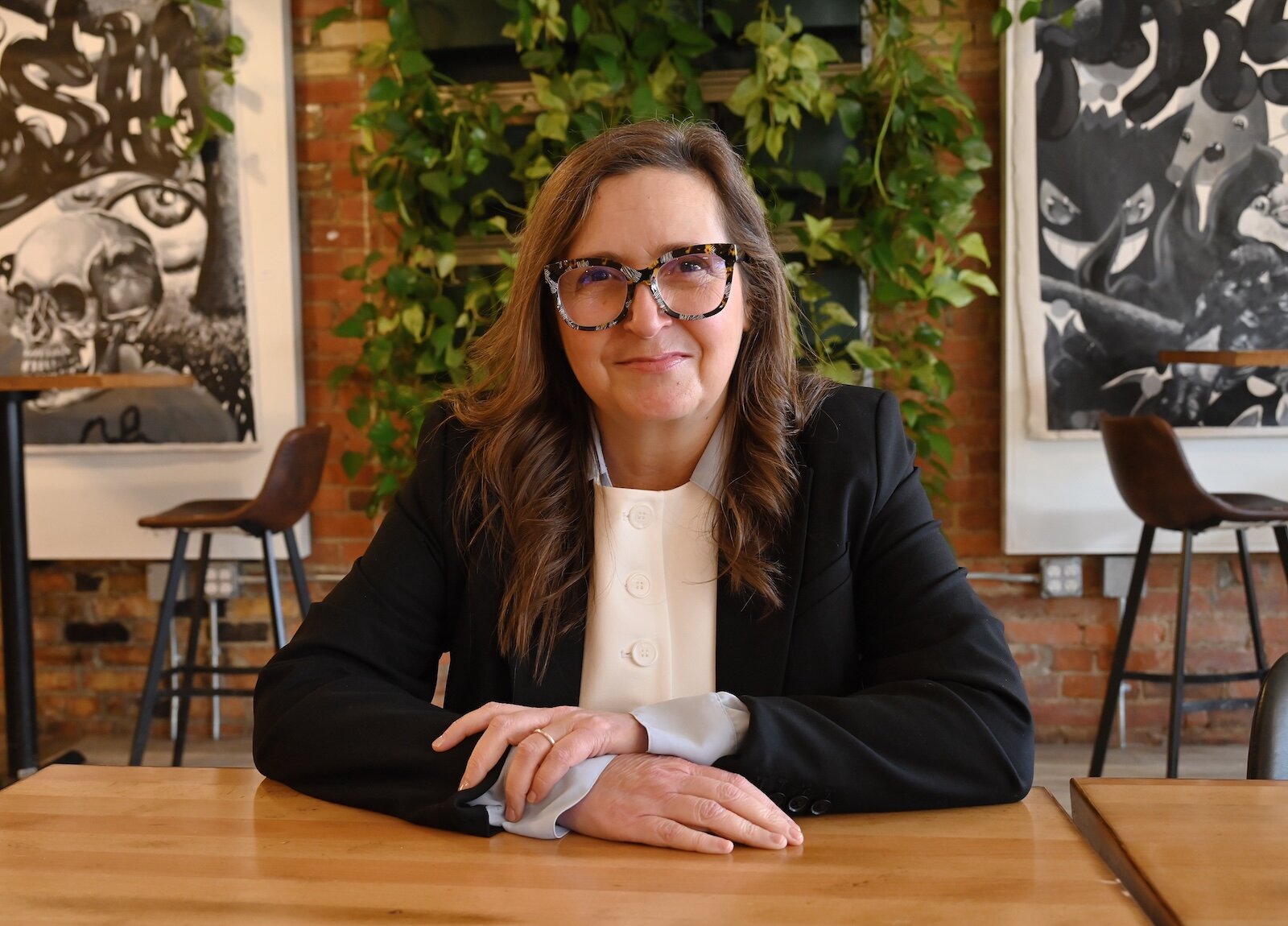
Kathy Szenda Wilson
“The CCBO was created to remove barriers for childcare businesses by providing critical back-office support services, enabling providers to focus on quality care and program growth. The CCBO envisions a Michigan where every family has access to quality childcare, and every childcare business can thrive.”
As part of her work with Develop Iosco, Gloria Brooks, MPA, founder of G. Brooks and Associates, did a community assessment in 2021 related to Early Childhood Education and concluded that it was a need that had to be addressed. The assessment was done in her role as a Board Member of Develop Iosco, the creation of which she spearheaded.
She is the architect of the CCBO blueprint, which uses a concept similar to one she developed for Hospice organizations throughout the United States. She had a 20-year career in the Hospice sector.
“In 2022, funds came up to create a Regional Childcare Coalition to look more in-depth at what are the needs of employers and families,” Brooks says. “Our outcomes up here at the end of 2023/24 identified that part of the challenge of childcare owners was not being able to expand their services. They didn’t feel like they had the capacity to expand. This is not a sustainable business model.”
Iosco County is part of the MEDC’s Region 3.

Kora Kelly counts other children at Kim’s Kiddie Korner Childcare.
Szenda-Wilson told Brooks that Region 8 was seeing a similar situation, and the two joined forces to further their efforts.
She says the CCBO is created as a virtual fee-for-service platform that will offer services in an a la carte format. The organization is concentrating its efforts now on hiring someone to lead it and securing $1.9 million, $125,000 of which has already been raised, to fund it for its first three years. After this, it will rely on revenue generated.
“Funders across the state are interested in Early Childhood Education and economic and workforce development,” Szenda-Wilson says.
The CCBO is expected to be up and running within the next five months. Until then, Borden says local childcare providers can seek back office services through the Pulse and the Calhoun County Intermediate School District (CCISD) which provides services such as centralized billing and enrollment services, professional development, technical assistance, and professional development to child-care centers for a monthly membership fee.
Coming alongside the securing of funding for the CCBO are conversations Pulse and collaborating organizations have been having in the region about helping cash-strapped childcare providers.
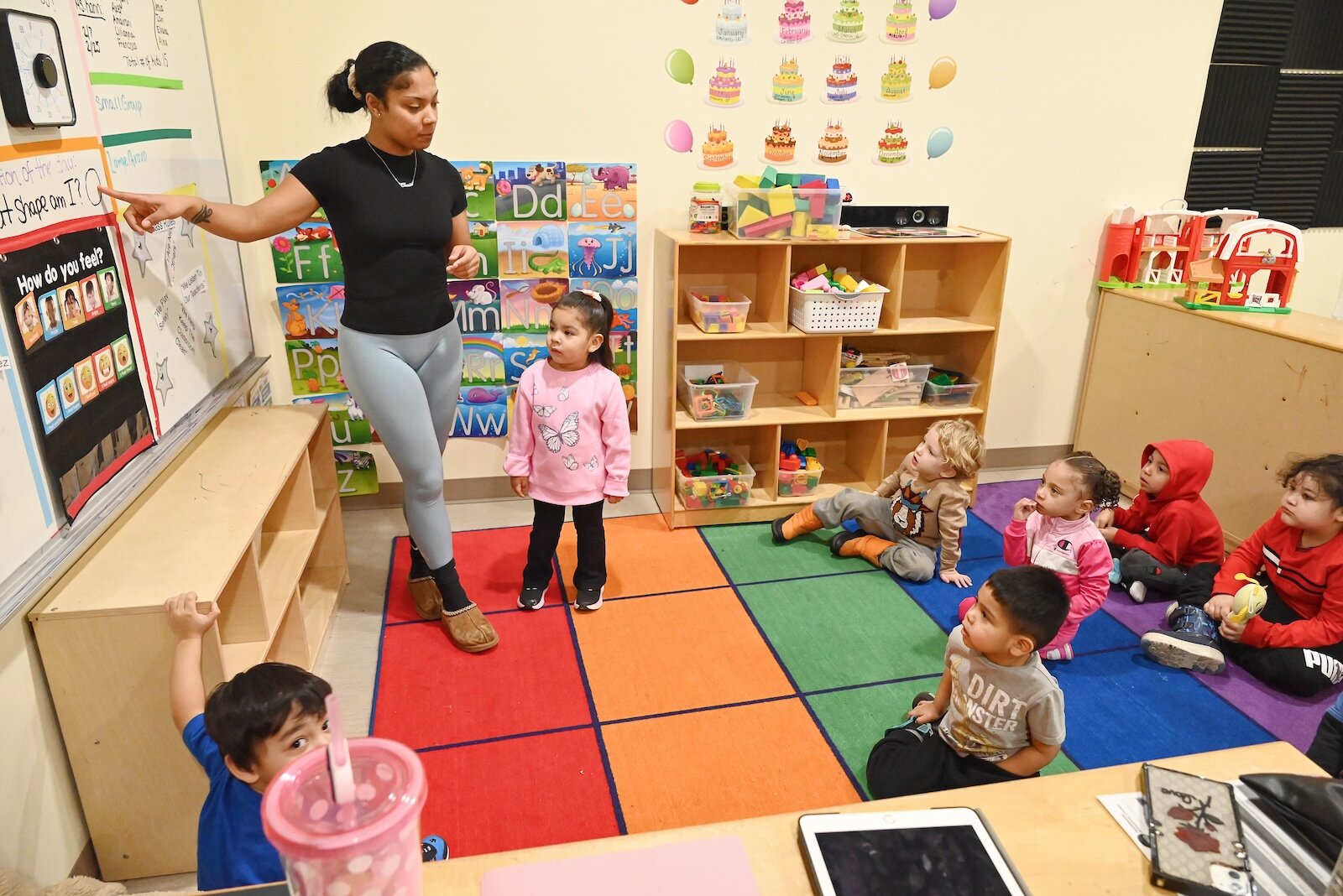
Cheria Richardson, lead teacher at LaEscuelita International Bilingual Early Childhood Education Center, is seen with a group of young children.
“How do we collectively subsidize providers who can’t afford to provide services but need them? That has been part of our conversations with local funders,” Szenda-Wilson says. “The CCBO services will cost money, and experts in different areas will be contracted to assist owners of center-based and home-based childcare businesses.”
Those well-versed in taxes, legal issues, and human resources will be among the professionals offering their expertise as part of an overall goal to stabilize the state’s childcare industry and create an infrastructure that alleviates burdens faced by childcare business owners such as managing back-office functions.
“The intent of starting this back-office type of process or support is an acknowledgment that Early Childhood professionals are doing multiple jobs all at once,” says Megan Russell Johnson, a Program Officer with the W.K. Kellogg Foundation. “If some of the back office responsibilities can be done collaboratively by the CCBO, that’s one way to make the childcare profession more appealing and prevent burnout.”
Since its inception, WKKF has been focused on this type of work as part of its mission to “support children, families, and communities as they strengthen and create conditions that propel vulnerable children to achieve success as individuals and as contributors to the larger community and society.”
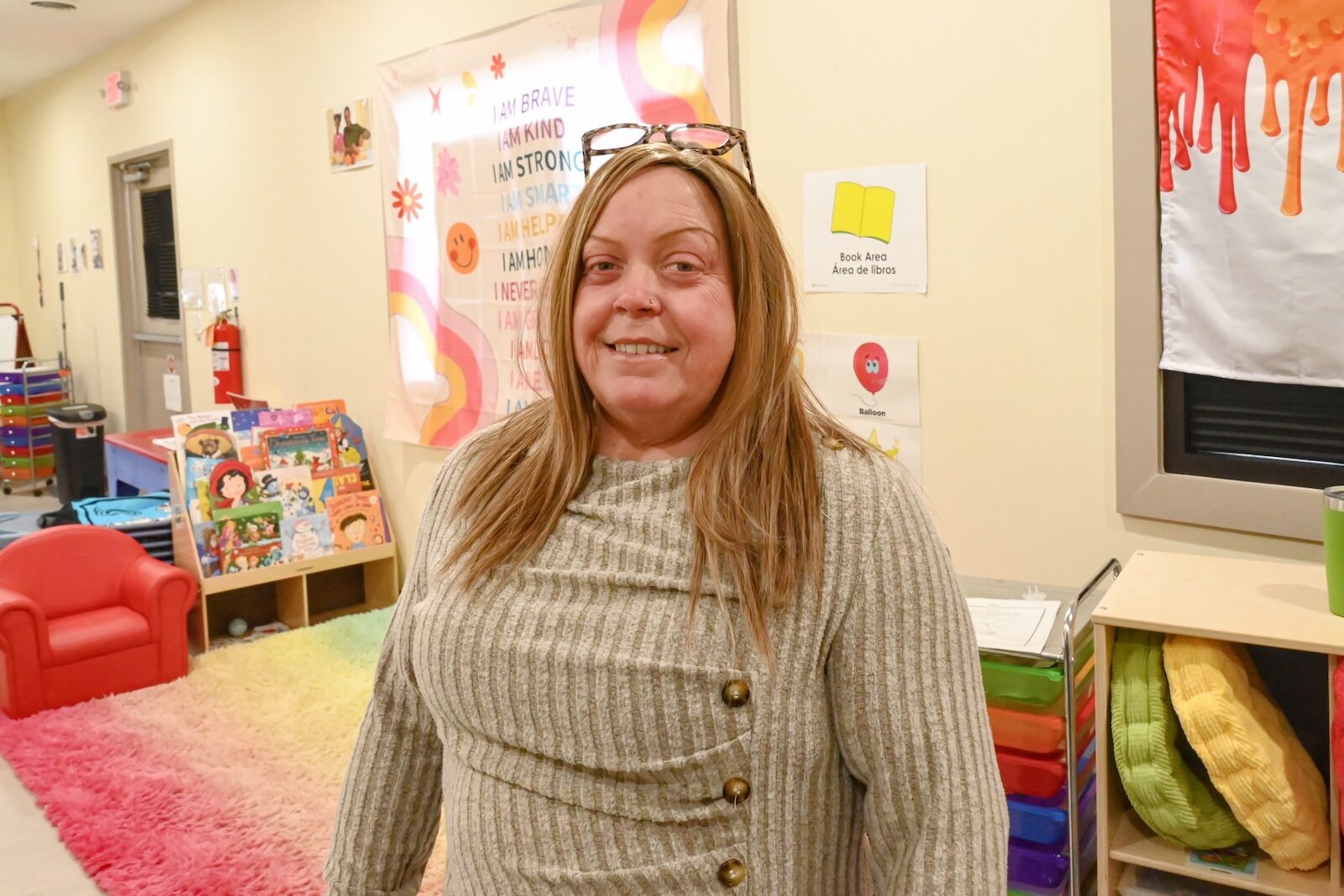
Amanda Stafford is the director of LaEscuelita International Bilingual Early Childhood Education Center operated by VOCES.
The Foundation has and continues to provide grants to Pulse and other organizations that are working to orchestrate positive changes and improvements to the local and statewide childcare business model.
Initially, Szenda-Wilson says she thinks childcare centers will be the CCBO’s largest customer base.
Supports to meet the need
“Our goal in Region 8 is to support home-based businesses,” she says.
Demand for available childcare slots in Calhoun County outstrips the supply. For every one slot, there are 1.9 children in need of this care, according to the Pulse website. Except for the City of Battle Creek, which has an “adequate” supply of childcare options and is the County’s largest municipality, the remainder of the County borders on “scarce,” which is highlighted in a Childcare Desert map of the United States/. Based on this map, Calhoun County’s Childcare Urgency level is “urgent.”
A child care desert is “any census tract with more than 50 children under age five that contains either no child care providers or so few options that there are more than three times as many children as licensed child care slots,” according to the Center for American Progress.
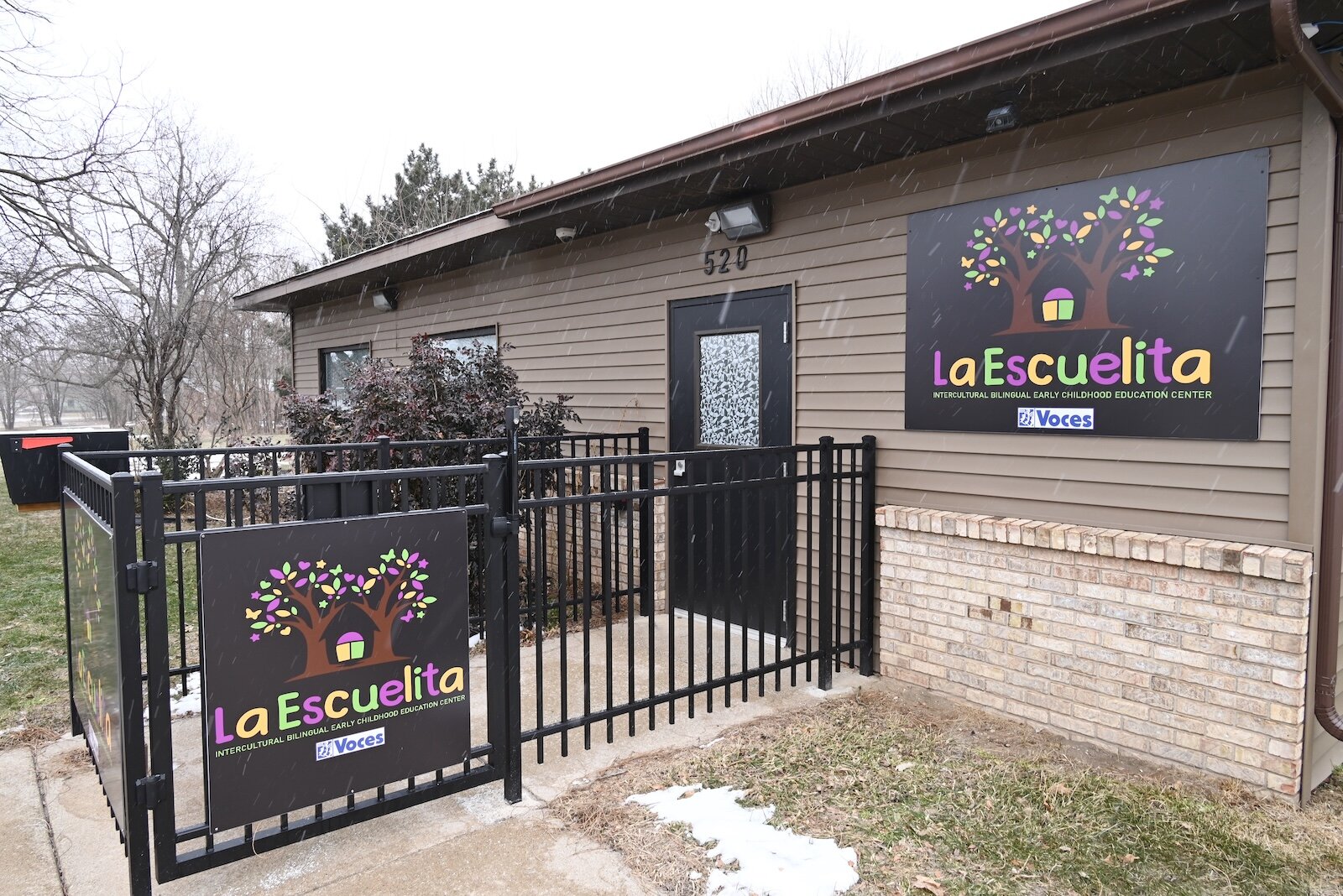
LaEscuelita International Bilingual Early Childhood Education Center, operated by VOCES, is located on West Michigan Avenue.
With the support of organizations including Pulse, local Early Childhood centers and home-based childcare businesses have gotten better at best practices, Borden says.
“We’re creating these hubs of family home childcare providers to build business skill sets and changing those mindsets about childcare as a business. I feel a little like there’s some conversations we have to have to get them to invest in Managed Service Organizations (MSO). As time goes by, we’ll see more of them,” she says.
While organizations like MSOs are designed to make the business of running a childcare center or home less challenging, childcare experts in Michigan are also working with state legislators to have different licensing to boost the number of childcare facilities.
“We’re looking at state licensing so home providers can operate multiple sites. One thing that has been proposed in New York State is going to allow for micro centers that will offer multiple home-based care. This would allow you to operate in another home and not live there,” Borden says. “Folks have purchased two homes together, so they have a shared backyard. This is also going to happen with licensed centers. You could be one person buying a home, and your business could be in multiple places. It’s less about ownership of the physical space and more about the space offered.”

Lakelyn Webb shows off cotton balls she used for painting a winter picture.
“How do we change the regulations to encourage expansion,” Szenda-Wilson says. “If we rely only on center-based facilities, these are cost prohibitive. People are relying on home-based care, and too many are unlicensed. How do we get people to take advantage and leverage those assets once they are available?”
Borden says she knows of one center-based facility looking at expansion opportunities because there were homes near the center they could acquire.
“It just allows for more creativity. We can successfully do this, and LARA (Michigan Department of Licensing and Regulation)can monitor it,” she says.
Under this scenario, childcare providers would have to have “a business mindset. You may own the business and have others working for you. This is addressing a need. We don’t have enough slots or places for kiddos.”

























